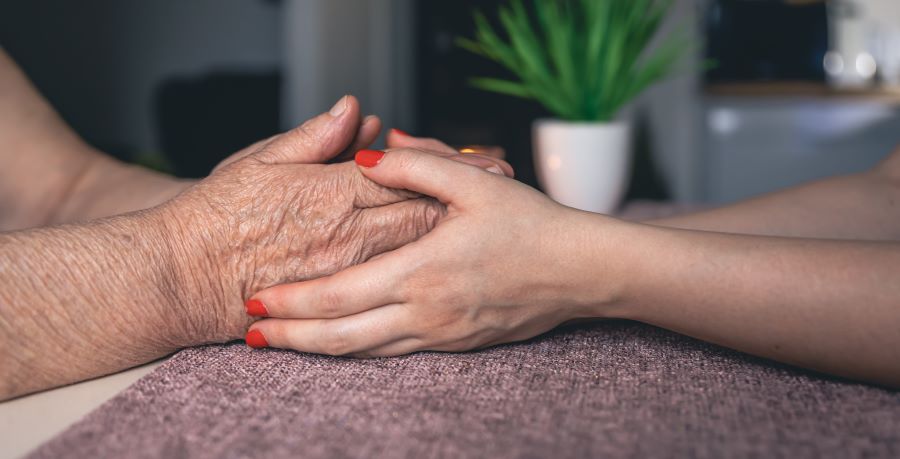The idea of elder care is deeply ingrained in Indian culture. Our culture has historically had a high sense of respect for the elderly, seeing them as a reservoir of knowledge and life experience. The dynamics of care for elderly people have changed, though, as times have changed and families have become more monogamous. In this blog, we’ll examine the fundamentals of elder care in the Indian setting and provide a helpful manual for elderly people and their families.
Table of Contents
Why is old age care important?
Care for the elderly is crucial for a variety of reasons. It can first aid elders in maintaining their independence and standard of living. Seniors can stay in their own homes and do the activities they love with the correct help. Second, providing for the elderly can benefit their health and wellbeing. Seniors who receive frequent care are more likely to stay active and engaged and are less likely to experience difficulties from ongoing medical concerns. Third, elderly care can give seniors and their family peace of mind. Stress and anxiety can be lessened when a family member knows their loved one is getting the care they require.
Embracing Aging in Indian Culture
Elders are respected in Indian society for their knowledge and life experience. Many people view aging as a natural evolution that provides an opportunity to teach newer generations about history and traditions. It’s crucial to acknowledge and honor the wisdom that comes with experience.
The Role of Family in Old Age Care
In giving emotional, social, and practical assistance for older loved ones, family plays a crucial role in elder care. Physical and cognitive limitations that come with aging may cause people to become more reliant on their relatives. Families provide company, ensuring that senior citizens stay socially active and lowering feelings of loneliness and sadness. Additionally, they help with daily chores including meal preparation, transportation, and doctor’s appointments. Additionally, family members frequently make important choices regarding healthcare and long-term care options while taking their loved one’s preferences and requirements into account. This network of family members supports seniors’ quality of life while also fostering a sense of security and belonging, highlighting the value of strong family ties in later life.

Planning Ahead
Planning for old age care in India involves several aspects:
a. Healthcare:
An individual’s physical and emotional well-being is promoted and maintained by a wide range of services under the umbrella of healthcare. It entails the medical diagnosis, prognosis, therapy, and management of diseases, accidents, and chronic disorders. In providing treatment, medical experts including doctors, nurses, and therapists are essential. Since timely treatments, illness prevention, and an improved quality of life are all guaranteed by access to high-quality healthcare, it is crucial for the general welfare of society. Globally, healthcare systems differ and are influenced by things like economy, culture, and governmental legislation, but their basic goal is still to protect and improve the health of people and communities.
b. Housing:
The term “housing” describes the provision of homes and shelter for individuals and families. It includes a broad range of possibilities, from private homes and apartments to nursing homes and assisted living facilities. A essential human necessity that affects both physical and emotional wellbeing is decent, safe housing. Housing policies and efforts are crucial for societal welfare and personal comfort since housing quality, cost, and accessibility are crucial variables in defining one’s overall quality of life.
c. Financial Planning:
The practice of managing one’s financial resources in order to accomplish particular objectives and ensure a safe financial future is known as financial planning. Budgeting, emergency fund saving, investment, retirement planning, and debt management are all part of it. Effective financial planning may give people and families a sense of stability, lessen financial stress, and help them realize their goals and desires. To maintain financial stability and long-term success, it frequently requires the experience of financial advisors or planners who can offer advice on investments, tax preparation, and retirement planning.
d. Legal Matters:
Legal matters encompass a wide range of issues related to the law, including contracts, disputes, estate planning, and more. Addressing legal matters is essential to ensure individuals’ rights are protected, and responsibilities are met. Legal professionals, such as lawyers, provide guidance and representation to navigate the complexities of the legal system and uphold the rule of law.
Traditional Indian Home Care
The values and practices of culture are strongly ingrained in traditional Indian home care. Elderly people frequently live in multigenerational households with their adult children and grandkids. Seniors receive emotional and physical support from their families, assuring their comfort and wellbeing. An important part of healthcare is played by the traditional Indian medical system known as Ayurveda, which makes use of natural treatments and dietary changes. Traditional practices like yoga and regular prayers also encourage overall well-being. Additionally, Indian families place a high value on respecting elders, which strengthens ties between generations. Even though modernization has brought about certain improvements, India’s aged care is still influenced by these old customs.
Alternatives to Home Care
Alternatives to home care for the elderly include assisted living facilities, nursing homes, and retirement communities. Assisted living provides a balance of independence and assistance, while nursing homes offer round-the-clock medical care. Retirement communities offer social engagement and activities for seniors. Home healthcare agencies can provide skilled medical services at home. Hospice care is available for those with terminal illnesses. Each option varies in terms of cost, level of care, and independence, allowing families to choose the best fit for their loved ones’ needs.
Maintaining a Healthy Lifestyle
Indian culture places a strong emphasis on holistic well-being. Encourage elderly family members to maintain a balanced diet, engage in regular physical activity like yoga, and stay socially connected with friends and community.
if you want to read more relevant article then click herehttps://medblogg.com/category/women-care/
Spiritual and Cultural Engagement
In many people’s life, especially in their latter years, engaging spiritually and culturally is crucial. It enhances their feeling of identity and general well-being.
Participating in spiritual activities such as meditation, prayer, or religious rituals. It gives one a sense of direction, comfort, and tranquility. A source of strength during trying times, many seniors find comfort and community in their spiritual beliefs.
One’s cultural history, including traditions, celebrations, and customs, is embraced through cultural engagement. Seniors frequently take part in cultural events, share stories, and transmit traditions to younger generations. This involvement helps people feel connected to their cultural roots and a sense of belonging.
Spirituality and culture working together can improve social and emotional health. For instance, taking part in cultural events with religious overtones might bring about a deep sense of fulfillment. As seniors share their cultural beliefs and personal experiences with younger family members, it can also foster opportunities for intergenerational connection.
Elder care plans that include spiritual and cultural practices can significantly improve the lives of elders by fostering in them a feeling of identity, community, and emotional fortitude.
Support for Caregivers
Family caregivers in India often face challenges in balancing their responsibilities. Support groups, respite care, and professional help can assist caregivers in providing the best possible care while also taking care of their own well-being.
if you want to do old age care course then choose this institutehttps://nihsr.com/
Conclusion
Old age care in India is a beautiful tapestry of traditions, values, and family bonds. While the landscape is changing with evolving lifestyles and urbanization, the core principles of respect for elders and family support remain steadfast. By blending the wisdom of the past with modern practices, Indian families can provide loving and holistic care for their elderly members, preserving the rich cultural heritage that has been cherished for centuries.

